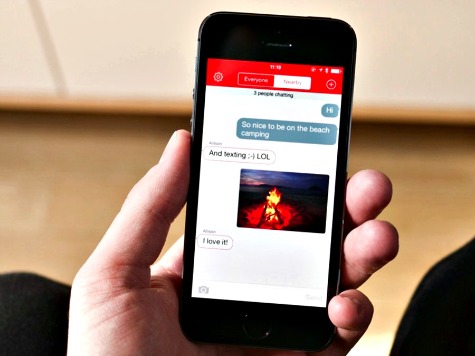A new Silicon Valley-based smartphone messaging app called FireChat is quickly taking on the same role in powering pro-democracy protests in Hong Kong that Twitter played in fueling the 2012 Arab Spring.
FireChat has been touted as an ideal communication tool for mass gatherings, as it does not require WiFi, an Internet connection, or a carrier plan. It operates by utilizing a phone’s Bluetooth connection to enable individuals who are using the app to communicate with one another, according to Forbes.
Between Sunday — when the protests began — and Monday morning, there were over 100,000 downloads of the FireChat app in Hong Kong, making it the region’s most widely-used peer-to-peer and No. 1 app in Hong Kong to date. China’s government blocked Instagram over the weekend.
China’s government has been known to censor its population, and protesters in Hong Kong fear authorities could be planning to shut down cellular networks in their city amid the protests. This has fueled FireChat downloads in the region as an ideal alternative for communication among the masses.
“I’m afraid that the government will cut down the network, and I want to make sure I have a point of contact with my family,” said 17-year-old student Sarah Chan to the AFP in Hong Kong.
The only caveat with the FireChat app is that all communication posted on it is considered public domain. A Facebook message from the founders of the app, OpenGarden, has warned users to “be cautious” about what they say in the app and have even suggested users create aliases in place of their real names as the company works on encrypting messages.
Smaller protests took hold in August of this year after China’s Communist Party [CPC] (which is the founding and ruling party of the People’s Republic of China [PRC]), announced that Hong Kong’s first-ever democratically-held mayoral elections in 2017 would be vetted by Beijing, not by the people. Only two to three candidates will reportedly be selected by a committee in Beijing to appear on the 2017 ballot.
Of Hong Kong’s 7.3 million-person population, 5 million are eligible to vote. The region was returned to Chinese rule in 1997 after years of being governed as a British Colony.

COMMENTS
Please let us know if you're having issues with commenting.